
Kintsugi Art Example Japanese Method of Pottery with Gold Repair Kintsugi, Kintsugi art, Pottery
An ancient Japanese art form is a testament to embracing imperfections and finding beauty in repair in a world that often celebrates perfection and discards the flawed. Kintsugi, the art of golden joinery, offers a profound philosophy beyond pottery restoration. Let's delve into the world of kintsugi and discover the beauty within brokenness!

Kintsukuroi is the Japanese art of repairing broken pottery with lacquer mixed with gold or
Adorning broken ceramics with a lacquer mixed with powdered gold is part of a more than 500-year-old Japanese tradition that highlights imperfections rather than hiding them. This not only.
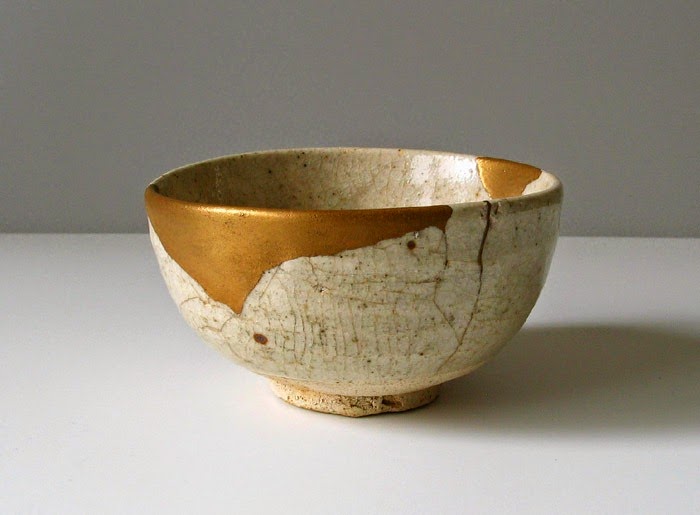
Kintsugi, The Japanese Art of Fixing Broken Pottery With Gold Amusing
What is Kintsugi. Kintsugi means Kin = golden, tsugi = joinery, so it literally means golden joinery. It's a technique of mending broken pottery/ceramics with lacquer dusted or mixed with powdered gold, silver, or platinum. Japanese urushi lacquer is made from the sap of the urushi tree and has been used in Japan since around 2400 BC.

Kintsukuroi, Fix Your Bowl With Beautiful Way Japanese gold repair, Kintsugi, Repair
Kintsugi, otherwise know as Kintsukuroi, is an interesting method of repairing broken Japanese pottery with gold. You read that right, actual gold. The philosophy of Kintsugi is to preserve.

Kintsugi Art Example Japanese Method of Pottery with Gold Repair Kintsugi, Kintsugi art
Kintsugi is the Japanese art of putting broken pottery pieces back together with gold — built on the idea that in embracing flaws and imperfections, you can create an even stronger, more.

Kintsugi Art Examples Pottery Repair Using Gold Kintsugi art, Kintsugi, Pottery art
Kintsugi (golden joinery) is the Japanese art of repairing broken pottery with lacquer dusted or mixed with powdered gold, silver, or platinum, a method similar to the maki-e technique. As a philosophy, it treats breakage and repair as part of the history of an object, rather than something to disguise.

Kintsugi The Japanese artform of repairing 'broken' pottery with Kintsugi, Japanese art
Kintsugi, which translates to "golden journey" or "golden repair", is the ancient Japanese art of mending broken pottery with a powdered gold, silver, or platinum lacquer, which makes the re-formed piece of pottery even more beautiful than the original, thanks to it's glittering veins of metallic "glue."
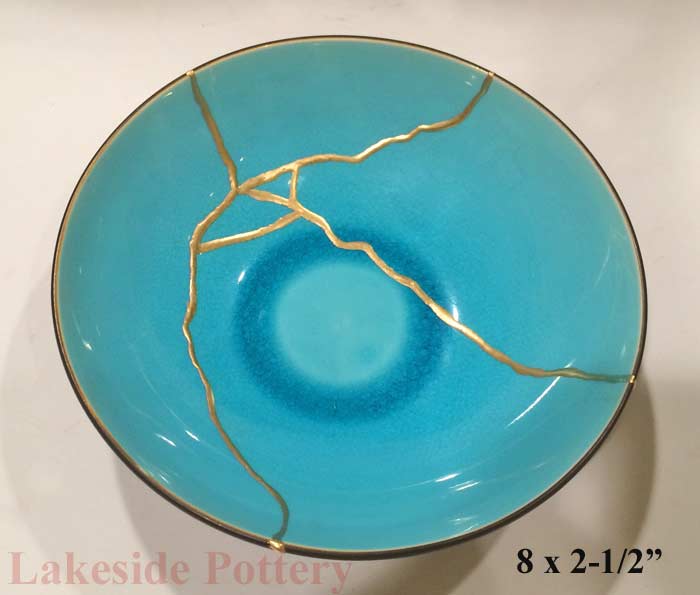
Kintsugi Art, How the Repair Made, Where to Buy Kintsukuroi Gold Repair
金継ぎ Kintsugi roughly translates as 'joining with gold' ( kin is 'gold' and tsugi is 'join'). It is a centuries-old Japanese repair technique which uses urushi (Japanese lacquer) dusted with powdered gold to restore broken ceramic and porcelain vessels. Rather than masking fractures, kintsugi highlights them with gold to tell an object's story.

Kintsugi The Art of Fixing Broken Pottery With Gold IE
The word kintsugi is made up of two Japanese words: kin, meaning "gold", and tsugi meaning "to join". Kintsugi is sometimes also known as "golden repair" or "golden joinery". It's the art of repairing broken pottery with gold, silver or platinum. The aesthetic philosophy behind kintsugi is based on the concept of wabisabi.
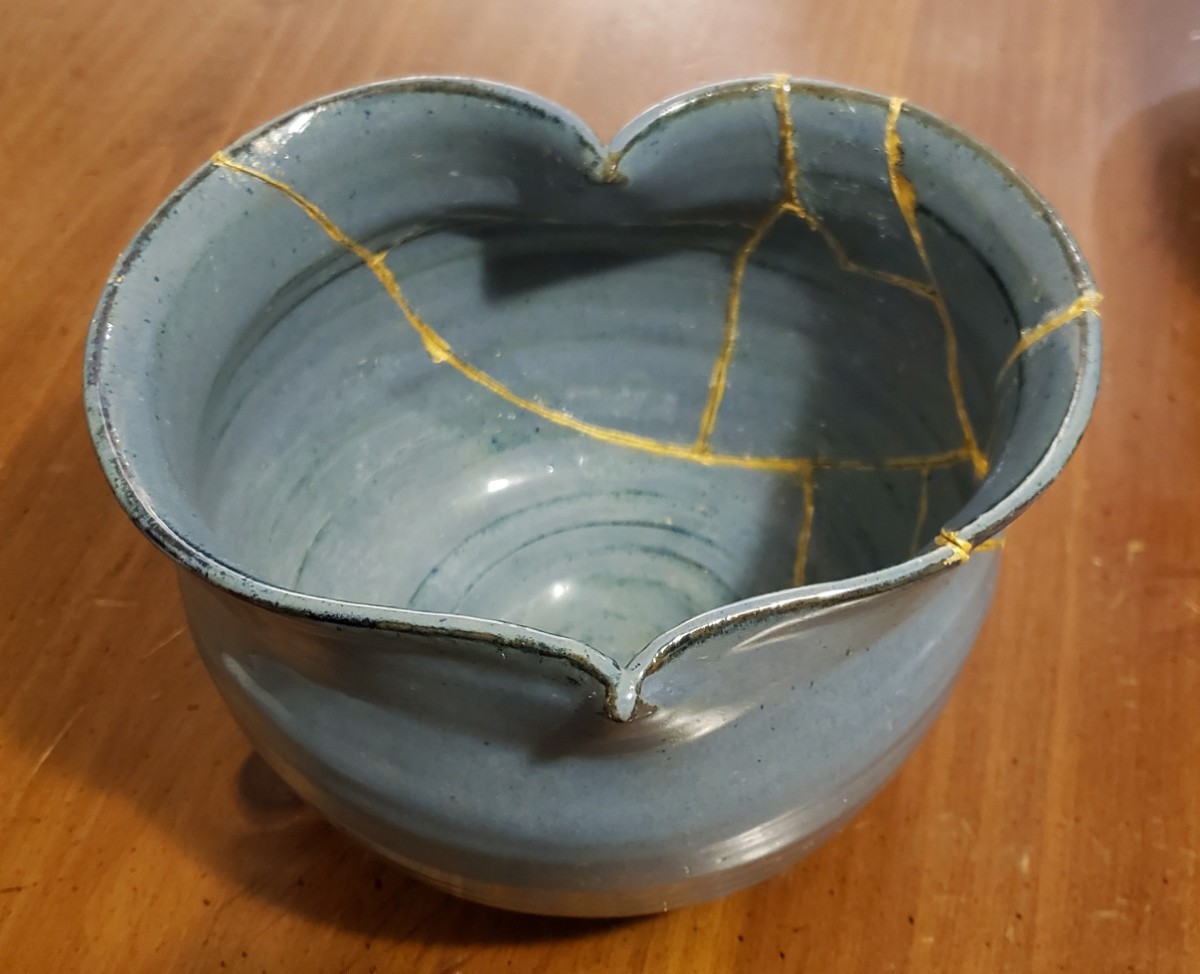
DIY Japanese Kintsugi Pottery Repair ThriftyFun
Casey Lesser Aug 24, 2018 12:11PM Tea bowl, White Satsuma ware, Japan, Edo period, 17th century. Courtesy of Freer|Sackler, Smithsonian. Some four or five centuries ago in Japan, a lavish technique emerged for repairing broken ceramics. Artisans began using lacquer and gold pigment to put shattered vessels back together.

Kintsugi The Art of Repairing Broken Ceramic With Gold
This repair technique is called kintsugi, which translates as "golden joinery" and uses a special lacquer mixed with gold, silver, or platinum, to fix the object in a way that highlights.
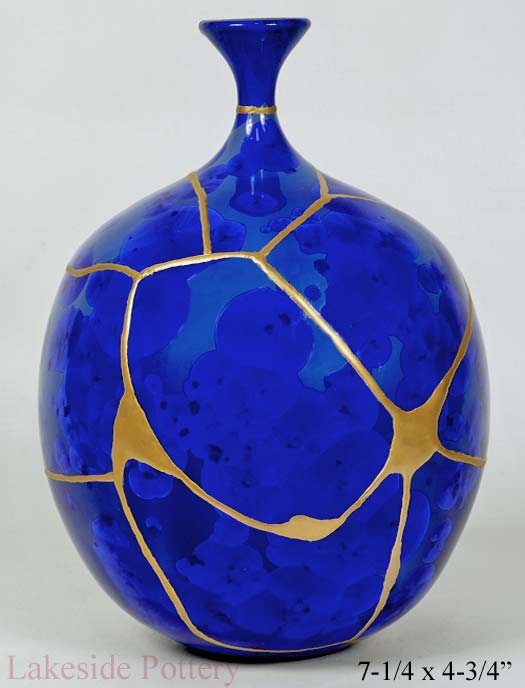
Kintsugi Art Examples Japanese Method of Pottery Repaired With Gold
Kintsugi is a centuries-old Japanese art of repairing broken pottery and transforming it into a new work of art with gold, the traditional metal used in Kintsugi. The name of the technique is derived from the words "Kin" (golden) and "tsugi" (joinery), which translate to mean "golden repair."
Kintsugi ('golden repair') is the Japanese art of repairing broken pottery with lacquer mixed
The story of Kintsugi is said to have begun in the 15th century when Japanese military commander Ashikaga Yoshimasa broke one of his beloved Chinese tea bowls and, disappointed with the shoddy.

How to Repair Broken Bowls with Gold The Art of Kintsugi HGTV Handmade YouTube
Poetically translated to "golden joinery," kintsugi, or Kintsukuroi, is the centuries-old Japanese art of fixing broken pottery. Rather than rejoin ceramic pieces with a camouflaged adhesive, the kintsugi technique employs a special tree sap lacquer dusted with powdered gold, silver, or platinum.
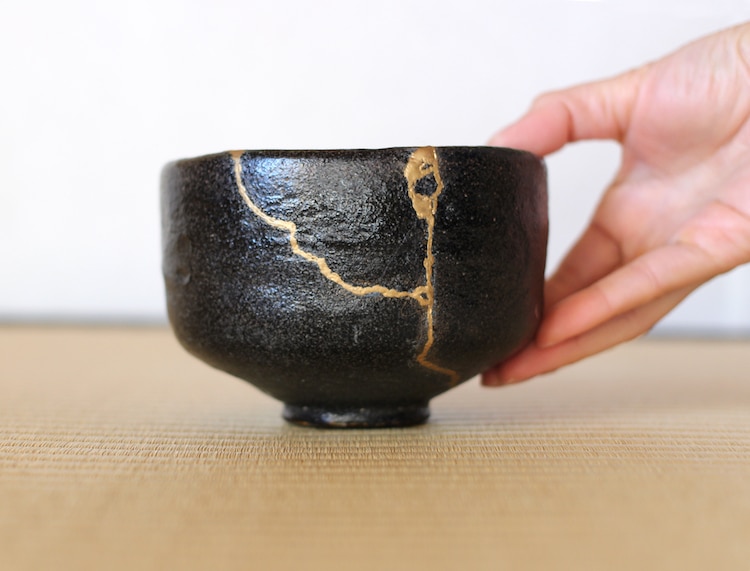
Kintsugi, a CenturiesOld Japanese Method of Repairing Pottery with Gold
Also known as Kintsukuroi or Golden repair or Golden joinery, Kintsugi is the art of repairing broken or cracked vessels by covering the cracks using lacquer and dusting them carefully with some precious metal like shiny gold powder, liquid gold, silver and so on. Japanese natives believe the golden cracks make the art more aesthetically.
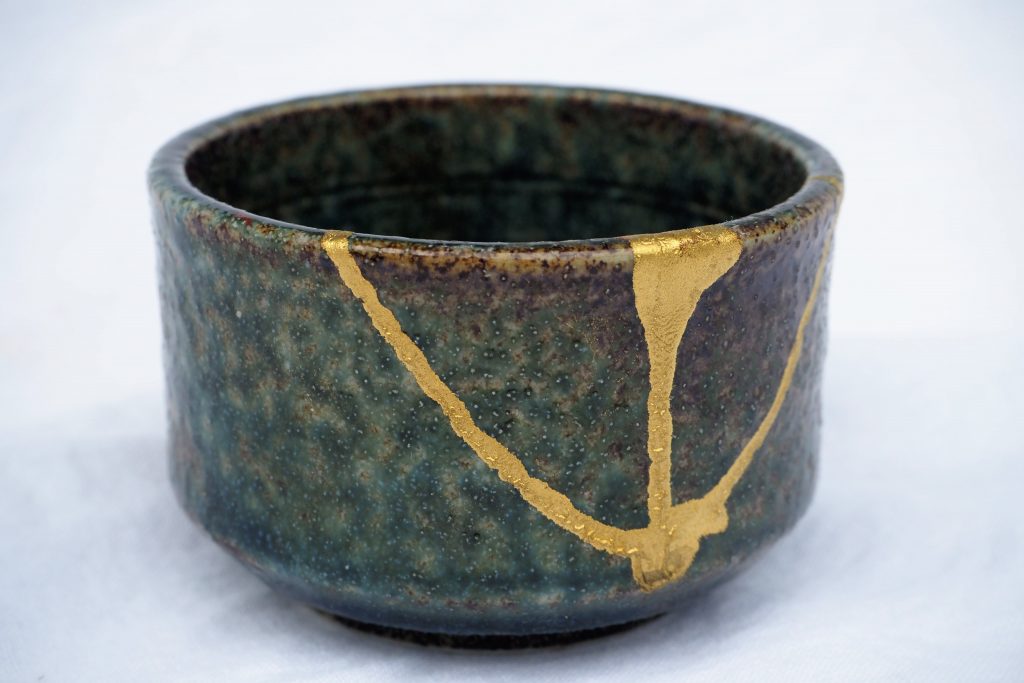
Kintsugi Restoring Broken Pottery With a Touch of Golden Beauty SENPAI JAPAN
Kintsugi ( 金継ぎ, "golden joinery"), also known as kintsukuroi ( 金繕い, "golden repair"), [1] is the Japanese art of repairing broken pottery by mending the areas of breakage with urushi lacquer dusted or mixed with powdered gold, silver, or platinum; the method is similar to the maki-e technique.